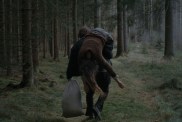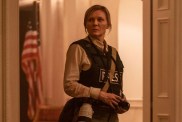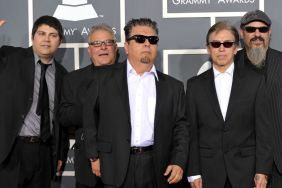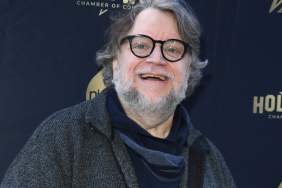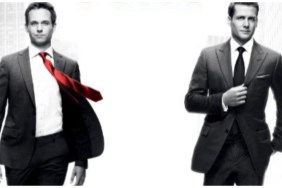Cast:
Denzel Washington as Robert McCall
Marton Csokas as Teddy
Chloë Grace Moretz as Teri
David Harbour as Masters
Johnny Skourtis as Ralphie
Haley Bennett as Mandy
Bill Pullman as Brian Plummer
Melissa Leo as Susan Plummer
David Meunier as Slavi
Vladimir Kulich as Vladimir Pushkin
Mike O’Dea as Remar
Anastasia Sanidopoulos Mousis as Jenny
Shawn Fitzgibbon as Little John Looney
Timothy John Smith as Detective Gilly
Robert Wahlberg as Detective Harris
Directed by Antoine Fuqua
Review:
“The Equalizer” may in fact be one of the better big screen adaptations of an old TV show, if for no other reason than it only marginally resembles the series it’s supposed to be based on. And by marginal I mean the main character of both versions is named Robert McCall, and that’s about it.
This Robert (Washington) is a collection of OCD ticks and issues, still grieving for a wife who recently died, and just trying to while away his time working at the local Home Depot lookalike store and not get involved with anyone. Certainly not the prostitute (Moretz) who hangs out at his local diner. Actually, there is one other thing he has in common with the TV version of McCall – he’s also a former killer for the CIA.
Antoine Fuqua’s adaptation of the once popular show–and more specifically the script by Richard Wenk–feels like a generic action thriller that a few aspects of the old version have been tacked onto. The rest is a bit more generic with oft repeated clichés like said prostitute who is beaten up by her pimp soon after befriending Robert. Faster than you can say ‘corkscrew in the neck,’ Robert has reverted back to his old ways and in the process called down the wrath (Csokas) of the Russian mafia family the pimp worked for.
Worse, Wenk seems to be a true fan of the ‘rule of three,’ making sure to show us three versions of the same scene anytime he wants to get some information across and make sure it sticks. McCall meets Teri in the same diner three times in a row to make sure we get the idea of the connection they’re building; he lectures wannabe security guard Ralphie (Skourtis) three times on the need for focus and commitment to succeed in the world, etc. It’s not so much that he reverts to this rule–there is a reason that it became a ‘rule’ in the first place–as the fact that he squeezes these elements together (mostly in the first act) resulting in the same note being played over and over. It makes the early going slow and repetitive.
And it’s not as if Fuqua and Wenk don’t know better. Once Robert realizes he likes the idea of using his old skills for the forces of good, he starts looking for more opportunities to do so but rather than ram the notion home, Fuqua and Wenk counterpoint it with the arrival and investigation of mafia troubleshooter Teddy, showing the aging killer coming alive again just as his greatest threat literally arrives at his door.
It’s mostly the strength of Washington that keeps the rest of the film from slowing down under its pacing problems. Though given little overt characterization–most of the characters talk to express attitude, not emotion or real thoughts–and only hints as to how he became the man he is, Washington imbues McCall with a brooding intensity which suggests a depth the script doesn’t bother paying off. Whether it is Robert’s obsession with time during his excursions or the death stare leveled at his opposition as he plots his next move, Washington conveys the idea that there are always wheels turning (and not always faultlessly) within Robert, even if the script offers less insight.
Fuqua himself has turned to his more subdued roots, away from the over-the-top bravado of “Olympus Has Fallen,” relying more on building a tension before the dam breaks than washing us away with bloodshed. It’s a good choice for all involved as Fuqua is genuinely good at mounting tension, particularly the buildup to the first explosion against the Russian pimp as we wait to find out what exactly Robert is capable of when he drops his calm pretense. If anything, Fuqua is too restrained and the moments between the action beats are frequently stretched out beyond patience, creating a tone that doesn’t exactly move to boredom but won’t keep you on the edge of your seat either.
Still, Washington does a good job making a flat character more compelling than he should be and if the film itself never quite grows wings, it’s not mired in the muck either. Solid (if uninspired) performances from the villains and other supporting cast members keep things going, and there’s certainly a foundation here for something more one day, so it’s not a waste of time. Entertaining but uninspired, “The Equalizer” proves if nothing else why Washington remains one of our better, if underused, movie stars.
The Equalizer
-
The Equalizer

-
The Equalizer

-
The Equalizer

-
The Equalizer

-
The Equalizer

-
The Equalizer

-
The Equalizer

-
The Equalizer

-
The Equalizer

-
The Equalizer

-
The Equalizer



